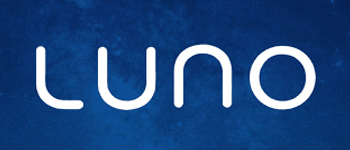
Over the past few weeks, regulators and financial institutions have been reacting to the worldwide popularity of bitcoin and other cryptocurrencies. In another regulatory-related matter, this week in Kuala Lumpur, Malaysia, the trading platform Luno had its bank account frozen by the country’s tax officials.
Also read: Federal Reserve Chair: “Fed Doesn’t Really Play Any Regulatory Role” in Bitcoin
Luno Emphasizes the Company is “Working Closely With the IRB to Limit the Parameters of the Broad Request”
 This week the exchange and wallet provider Luno (formerly Bitx) announced it is having issues with the Malaysian tax authorities. Created in 2013, the London-based business Luno has been providing bitcoin and ethereum to countries such as Nigeria, South Africa, Malaysia, Indonesia, the UK, and 35 other European regions. Malaysia’s Inland Revenue Board (IRB) froze the firm’s Malaysian bank account on January 13, an account that was held under its local business name ‘Bitx Malaysia.’ Luno explains to the Edge Markets financial publication that the IRB is investigating a case that involves tax discrepancies.
This week the exchange and wallet provider Luno (formerly Bitx) announced it is having issues with the Malaysian tax authorities. Created in 2013, the London-based business Luno has been providing bitcoin and ethereum to countries such as Nigeria, South Africa, Malaysia, Indonesia, the UK, and 35 other European regions. Malaysia’s Inland Revenue Board (IRB) froze the firm’s Malaysian bank account on January 13, an account that was held under its local business name ‘Bitx Malaysia.’ Luno explains to the Edge Markets financial publication that the IRB is investigating a case that involves tax discrepancies.
“As part of this, IRB has requested that we provide them with information on all our Malaysian customers: identification, deposits/withdrawals, and transactions,” Luno details.
We are working closely with the IRB to limit the parameters of this broad request.
Luno Asks Malaysian Customers to Follow Tax Requirements, and the Firm Is Supportive of the Central Bank’s Regulatory Measures
In the meantime, Malaysia based Luno customers can still trade bitcoin and ethereum using the national tender the MYR. “All your funds — local and digital currencies — remain safe with Luno and all other services remain unaffected,” the company emphasizes. Much like Coinbase in the U.S., the trading platform Luno also tells its Malaysian customer base that they should pay their taxes. Luno explains they are working closely with the banks in the area and the IRB to resolve the situation as fast as possible.
“Navigating this requires everyone to work together to figure out optimal solutions to ensure the industry is safe and conducive to business — We are supportive of the recent measures by Bank Negara Malaysia to come up with reporting requirements for digital currency exchanges,” Luno states.
As set out in our privacy policy, we value our customers’ privacy and strive to protect your personal information. We will only provide personal information where we are legally required to do so and are working with our local advisers to ensure that any disclosure is consistent with our obligations to you, our customers.
Bank Negara Malaysia Has Proposed Strict KYC/AML Measures for Domestic Digital Currency Exchanges
 The recent issues in Malaysia with the Luno exchange are followed by the Bank Negara Malaysia (BNM), the country’s central bank, publishing drafted digital currency regulatory guidelines for citizens and businesses residing in the region. The BNM had put the proposals up for public review, and Know Your Customer (KYC) and Anti-Money Laundering (AML) guidelines are highlighted. “A digital currency exchanger must declare its details,” says the BNM this past December. “The public is reminded that digital currencies are not legal tender in Malaysia,” notes the central bank. The trading platform Luno, which commands quite a bit of Malaysian cryptocurrency volume, seems to be the first victim of the central bank’s intervention.
The recent issues in Malaysia with the Luno exchange are followed by the Bank Negara Malaysia (BNM), the country’s central bank, publishing drafted digital currency regulatory guidelines for citizens and businesses residing in the region. The BNM had put the proposals up for public review, and Know Your Customer (KYC) and Anti-Money Laundering (AML) guidelines are highlighted. “A digital currency exchanger must declare its details,” says the BNM this past December. “The public is reminded that digital currencies are not legal tender in Malaysia,” notes the central bank. The trading platform Luno, which commands quite a bit of Malaysian cryptocurrency volume, seems to be the first victim of the central bank’s intervention.
What do you think about Luno’s bank account being frozen by tax officials? Let us know what you think about this story in the comments below.
Images via Abd. Halim Hadi /Shutterstock, the Bank Negara Malaysia, and Luno logo.
Tired of those other forums on the subject of Bitcoin? Check out our censorship-free forums!
